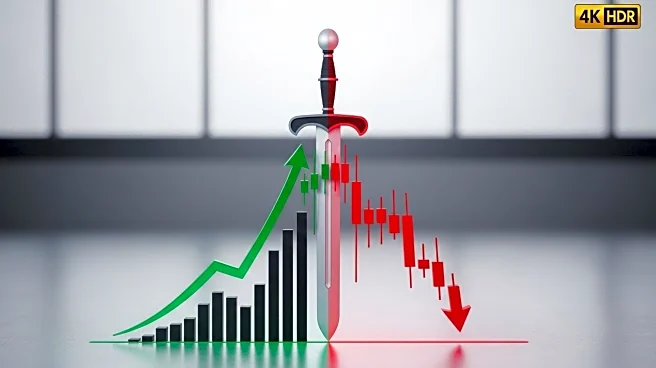What's Happening?
In the retail sector, viral marketing campaigns have become a popular strategy for brands like American Eagle Outfitters (AEO) and Gap Inc. to capture consumer attention and boost stock prices. American Eagle's 'Sydney Sweeney Has Great Jeans' campaign sparked significant social media debate and a temporary stock surge, but failed to sustain sales growth. Despite a 60% increase in website traffic, the company's Q2 comparable sales fell by 1%, and net sales slightly decreased year-over-year. Conversely, Gap's 'Better in Denim' campaign, featuring K-pop group KATSEYE, generated massive online engagement and a modest 4% stock increase. However, Gap's financial results showed flat net sales and margin pressures, indicating that viral success does not necessarily translate into long-term financial stability.
Why It's Important?
These cases underscore the challenges retailers face in balancing cultural relevance with financial sustainability. While viral campaigns can generate short-term stock gains, they often fail to address deeper operational issues. For American Eagle, the reliance on celebrity-driven campaigns risks alienating core demographics without resolving structural margin pressures. Gap's nostalgia-driven engagement highlights the potential for sustained customer interest, but also reveals the limitations of relying solely on viral marketing for profit growth. Investors must consider metrics like gross margin expansion and customer retention over transient media buzz to assess a company's long-term value.
What's Next?
Retailers may continue to leverage viral marketing to capture consumer attention, but the focus will likely shift towards integrating these campaigns with robust operational strategies. Companies like American Eagle and Gap will need to address underlying financial challenges to ensure sustainable growth. Investors will be watching for signs of inventory optimization, margin stabilization, and improved customer retention as indicators of a company's ability to balance cultural relevance with financial performance. The retail sector may see a broader shift towards more strategic and integrated marketing approaches that prioritize long-term value over short-term hype.









